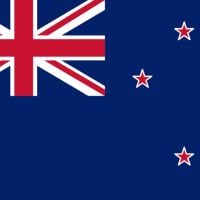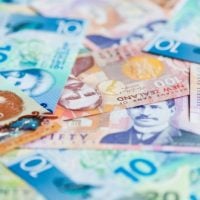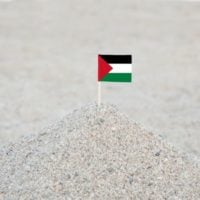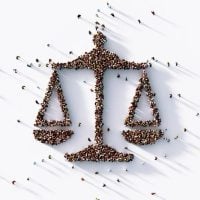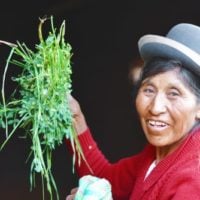Deadline: 15-Mar-24
The United States Government, as represented by the U.S. Agency for International Development (USAID), the Bureau for Inclusive Growth, Partnerships, and Innovation (IPI) Inclusive Development Hub (ID) Lesbian, Gay, Bisexual, Transgender, Queer, and Intersex (LGBTQI+) Team invites interested applicant(s) to submit Concept Note(s) that aims to advance the inclusive development of LGBTQI+ communities and individuals through regional/multi-country civil society organizations (CSOs) and/or coalitions, especially those based in USAID presence countries in the Global South and East.
Funding through this opportunity will support activities including, but not limited to, those that focus on the holistic advancement of LGBTQI+ populations (i.e., securing their rights to employment, education, livelihoods, and access to basic services); and their ability to effectively respond to the harmful effects of anti-rights actors. These activities will advance multiple Agency priorities, including those articulated in the USAID LGBTQI+ Inclusive Development Policy, the USAID Policy Framework, Democracy, Human Rights and Governance Strategy, the Gender Equality and Women’s Empowerment Policy, the Local Capacity Strengthening Policy, the Youth in Development Policy, the USAID Policy on Promoting the Rights of Indigenous People, and the 2022 U.S. Strategy to Prevent and Respond to Gender-Based Violence Globally, among others.
The LGBTQI+ Addendum issued under the Justice, Rights, and Security (JRS) Annual Program Statement (APS) is not a Request for Applications (RFA) but rather a request for Concept Note(s) in response to this Addendum published under the JRS APS. To be competitive under this procurement, the Concept Note submission must be fully responsive to all directions under this Addendum and the JRS APS. Based on the submitted Concept Note, DDI/ID/LGBTQI+ will determine whether to request a Full Application from an eligible applicant. Applicant(s) should not submit a Full Application unless they receive an invitation to do so from USAID.
Purpose
- The purpose of the JRS APS, as stated in the initial announcement, is to empower USAID and its Missions to seek solutions to JRS-related challenges, to engage new and underutilized partners, to solve problems not adequately addressed by other USAID investments, and to offer USAID Missions and USAID/Washington Offices a mechanism through which such work can be innovatively accomplished with dedicated support and expertise from USAID Washington DRG Center’s JRS team. The specific purpose of the LGBTQI+ Addendum is to support regional/multi-country initiatives to advance the holistic development of LGBTQI+ populations (i.e., securing their rights to employment, education, livelihoods, and access to basic services) and to more effectively respond to the harmful effects of anti-rights actors.
Objectives and Illustrative Strategic Approaches:
- Objective #1: Advance the rights of LGBTQI+ individuals and communities to access education, professional development, employment opportunities, and sustainable livelihoods.
- Due to high levels of stigma and discrimination and criminalizing and punitive laws and policies, LGBTQI+ people face unique challenges to securing employment and sustainable livelihoods. This often begins in the education sector, where LGBTQI+ students often do not have the support of educators to help address anti-LGBTQI+ violence or bullying, as described in USAID’s Integrating LGBTQI+ Considerations Into Education Programming
- With the majority of USAID-presence countries lacking any SOGIESC-related legal protections, LGBTQI+ individuals may face discrimination in hiring, unfair termination, verbal and/or physical harassment, and lower pay, among many other challenges. As a result of estrangement and rejection from their families, LGBTQI+ people often lack the family/social support structures that many others have and, due to an often corresponding limited education opportunities, may also lack financial literacy and access to capital.
- Illustrative strategic approaches for this objective may include, but are not limited to:
- Developing and disseminating anti-bullying resources and campaigns in partnership with schools, Ministries of Education, civil society organizations, and others to promote LGBTQI+ inclusion in schools and curriculums;
- Empowering LGBTQI+ individuals with job skills and vocational training (including English language training) based on an assessment of the training needs and job market opportunities;
- Supporting the development of industry or professional associations that support LGBTQI+-owned businesses or businesses that provide services/products for the LGBTQI+ community.
- Training/capacity development for LGBTQI+ business owners and businesses providing services to the LGBTQI+ community on (a) legal protections that apply to them under the law and (b) modalities for recourse in case of discrimination and/or for keeping public authorities and private entities accountable to the law.
- Objective #2: Advance the rights of LGBTQI+ individuals and communities to access quality basic health services, including mental health and psychosocial support (MHPSS) services.
- Just as LGBTQI+ individuals are disproportionately affected by unemployment, they likewise face higher rates of both communicable and non-communicable diseases than cisgender, heterosexual people. This is due to many well-researched social determinants, including stigma and discrimination in health services. At worst, members of the LGBTQI+ community are subjected to harmful practices or denied health services altogether; at best, they are seen by health professionals with little understanding or knowledge of sexual orientation, gender identity, gender expression, and sex characteristics (SOGIESC), nor of the unique health (including MHPSS) needs of community members – especially members of transgender communities.
- Illustrative strategic approaches for this objective may include, but are not limited to:
- Developing training, guidelines, and resources in local languages for health professionals and mental health providers on LGBTQI+-inclusion, confidentiality, and/or standards of and consent to care for intersex, gender non-conforming, and transgender individuals;
- Developing digital referral networks of affirming health and mental health care providers;
- Developing and supporting holistic care and wrap-around health (including mental health) services for survivors from so-called CTP or IGM, including community-based service delivery;
- Creating alliances with activists and CSOs, faith leaders, religious institutions, supportive parents, health professionals, legislators, supportive parents, and/or public health officials to debunk the myths around and educate on the dangers of so-called CTP and IGM;
- Objective #3: Advance the ability of LGBTQI+-led organizations and/or coalitions to effectively respond to and counter anti-rights actors.
- Transnational actors and their influences challenge democratic norms and social cohesion that have made gains in several countries over the past decade. These actors and influences often manifest through targeted attacks on women’s rights, gender equality, sexual and reproductive health and rights, and LGBTQI+ rights, often under the guise of protecting children and family values. These attacks are used as ‘wedge’ issues to initiate more broad-based efforts to undermine rule of law, freedom of assembly and association, free and independent media, and democratic elections.
- Illustrative strategic approaches for this objective may include, but are not limited to:
- Supporting the creation, translation, and/or dissemination of culturally appropriate and evidence-based content in local language(s) to proactively dispel the myths of anti-rights actors, educate on existence of pre-colonial diversity in SOGIESC, and recognize the contributions of LGBTQI+ people throughout history;
- Providing LGBTQI+ organizations and activists with sufficient knowledge and tools to monitor and report on harmful mis- and disinformation about LGBTQI+ issues (including so-called CTP, “reparative therapy,” “unwanted same-sex attraction,” etc.) on traditional and social media platforms;
- Increasing the capacities of organizations to prevent and/or respond to and mitigate the harms of technology-facilitated GBV targeting LGBTQI+ persons;
- Establishing cross-sectoral coalitions and cross-movement solidarity to positively reframe and respond to threats emanating from anti-rights actors;
Funding Information
- Full Application(s), and at the discretion of the Agency and funding availability, USAID intends to provide a total of up to $25 million across all awards issued under the LGBTQI+ Addendum up to a five (5) year period of performance. Award amounts will vary, with a floor of at least $500 thousand and a ceiling of $10 million. The total number of awards issued will depend on funding availability and the nature and amount of applications received.
Eligibility Criteria
- Non-U.S. and U.S. non-profit organizations are eligible to submit a Concept Note. Given the sensitivity of this work and to avoid jeopardizing the personal safety of the applicant or recipient’s staff or clients, USAID recognizes that not all organizations may be not be able to obtain a UEI and/or registration in SAM and, where appropriate/necessary, may grant exemptions to the Foreign Funding Accountability and Transparency Act (2006) requirement (see ADS 303maz). USAID will prioritize LGBTQI+ organizations (i.e., organizations led by LGBTQI+ persons themselves, with a majority of staff and board members representing the diversity of LGBTQI+ communities) and/or LGBTQI+ -led coalitions with regional/multi-country activities in USAID presence countries and will consider applications from U.S.- and Global North-based LGBTQI+-led organizations and/or organizations that are not LGBTQI+-led in the absence of a competitive concept note submissions from a regional/sub-regional partner organization.
- USAID defines “Implementing Partners” as U.S. and non-U.S. non-governmental organizations that can design and implement assistance activities outside the United States. All Implementing Partners must be legally registered entities under applicable law and eligible under the relevant laws to receive funding from a foreign source. Implementing Partners must also have a Unique Entity Identifier (UEI) and maintain current registration in SAM.gov to be eligible to receive United States Government (USG) funding.
- USAID is committed to advancing equity and support for underserved and underrepresented communities. Not only does USAID require non-discrimination in its programming, but successful applicants should implement strategies for integration and inclusion of individuals/organizations/beneficiaries that can bring perspectives based on their religion, sex, disability, race, ethnicity, sexual orientation, gender identity, gender expression, sex characteristics, national origin, age, genetic information, marital status, parental status, pregnancy, political affiliation, or veteran’s status. Programs should be demand-driven and locally led to the extent possible.
- Applicants should have existing, or the capacity to develop active partnerships with thematic in-country partners, entities, and relevant stakeholders, including private sector partners and NGOs, and have demonstrable experience in administering successful and preferably similar projects. USAID highly encourages applications from non-U.S.-based CSOs in USAID presence countries. Applicants may form consortia in order to bring together organizations with varied expertise to propose a comprehensive program in one concept note. However, one organization should be designated in the proposal as the lead applicant, with the other members designated as sub-award partners. USAID reserves the right to request additional background information on applicants that do not have previous experience administering federal grant awards.
- While organizations can serve as sub-awardees or supporting partners on multiple Concept Notes under the LGBTQI+ Addendum, all interested organizations are restricted to submitting ONLY one (1) Concept Note as the Prime Applicant. If more than one Concept Note is received with the same Prime Applicant, USAID will seek written clarification from the relevant entity regarding which Concept Note should be considered for review. If clarification is not resolved within five (5) business days, all Concept Notes submitted by the Applicant will be deemed ineligible.
For more information, visit Grants.gov.



